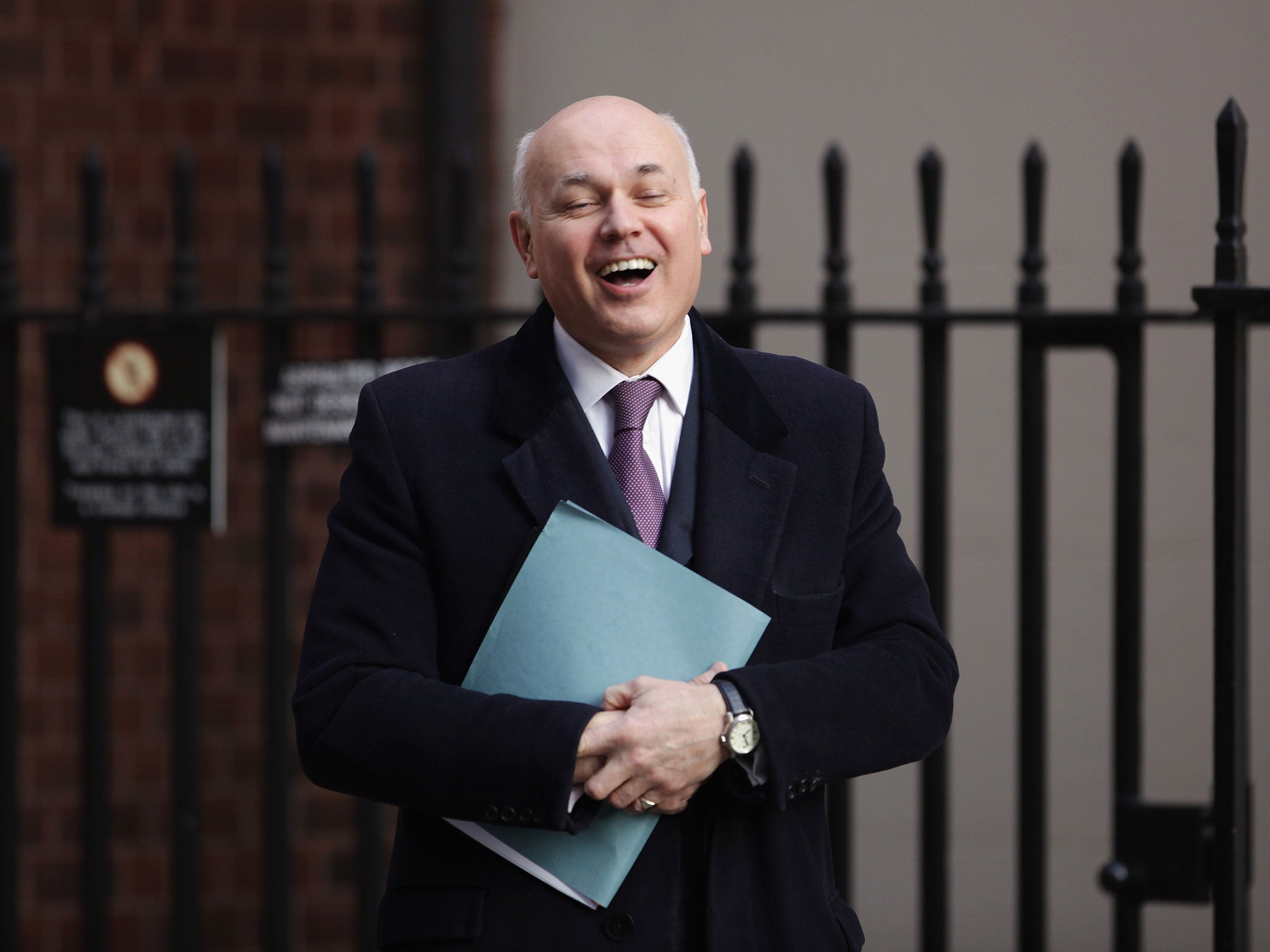Iain Duncan Smith compares George Osborne to 'Pinocchio' over Brexit house prices claim
'Let me just remind everybody that it was George Osborne who said Treasury reports couldn't be trusted'

Your support helps us to tell the story
From reproductive rights to climate change to Big Tech, The Independent is on the ground when the story is developing. Whether it's investigating the financials of Elon Musk's pro-Trump PAC or producing our latest documentary, 'The A Word', which shines a light on the American women fighting for reproductive rights, we know how important it is to parse out the facts from the messaging.
At such a critical moment in US history, we need reporters on the ground. Your donation allows us to keep sending journalists to speak to both sides of the story.
The Independent is trusted by Americans across the entire political spectrum. And unlike many other quality news outlets, we choose not to lock Americans out of our reporting and analysis with paywalls. We believe quality journalism should be available to everyone, paid for by those who can afford it.
Your support makes all the difference.Former Cabinet minister Iain Duncan Smith has renewed the Tory war or words over the referendum campaign, comparing George Osborne to “Pinocchio” over his claim that house prices could plummet as a result of Brexit.
The former Work and Pensions Secretary and Leave campaigner, who resigned in March citing frustration with cuts to the disability welfare budget, said that Mr Osborne’s claim, based on a Treasury analysis due to be published next week, made him “think of Pinocchio and the nose growing rather long”.
“Let me just remind everybody that it was the Treasury and George Osborne who said when we came into power in 2010 we couldn’t trust Treasury reports because they were always fiddled with by chancellors of the exchequer,” Mr Duncan Smith told Sky News.
Mr Osborne has said the economic shock of Brexit could hold back house prices, meaning they would be 18 per cent lower by 2018 than they would be if the UK votes to remain.
Speaking at a meeting of G7 country finance ministers, Mr Osborne said the claim was backed by soon-to-be-published Treasury figures.
He told the BBC: “Next week the Treasury is going to publish analysis of what the immediate impact will be and one consequence of leaving the European Union is that there would be a hit to the value of people’s homes of at least 10 per cent, and up to 18 per cent.”
Warning of an “immediate economic shock that will hit financial markets”, the Chancellor said that mortgage repayments could also rise.
The figures cited by Mr Osborne suggest the Treasury is assuming a shock to the housing market similar in magnitude to that experienced in the global financial crisis. House prices, as measured by the Nationwide, fell 20 per cent between 2007 and 2009.
But over the past seven years house prices have recovered strongly, rising 34 per cent. This has far outstripped wage growth and has exacerbated an affordability crisis for first-time buyers.
Britons have traditionally been sensitive to house prices because a very large proportion of many families’ net worth is tied up in housing. Research also suggests people’s spending patterns are influenced by house values, implying a fall in house prices could also deter spending, which would damage the overall economy.
Join our commenting forum
Join thought-provoking conversations, follow other Independent readers and see their replies
Comments